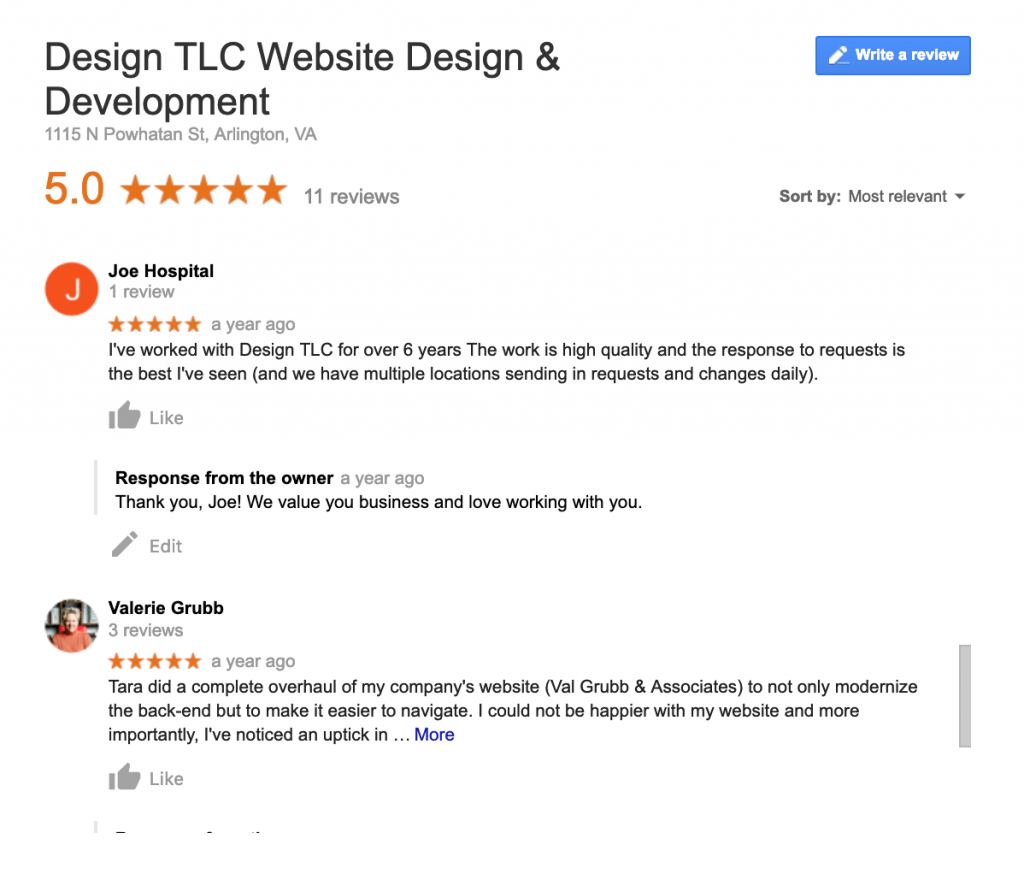Reputation Marketing: Get More Genuine Online Business Reviews

When you’re looking to try a new restaurant or find a home service provider, what do you do? If you are like most people, you turn to the internet to search, and then you look at online reviews to narrow down your options and make a decision about where to go or who to hire. Businesses need to pay attention to Reputation Marketing, or the management of online reviews.
“If you run a small business today, the single most important thing you can do to attract new customers is to take control of your online review score on sites like Yelp, Google My Business, FourSquare and TripAdvisor.”
–Forbes
How Online Reviews Help Your Business
Search Engine Results
Reviews are now one of the top factors in Google’s search ranking results. Search engines are relying more and more on reviews to determine the quality of a business. This means that you have an opportunity to increase your SEO if you engage with your review process and your reviewers.
Buyer Decision Making
A popular study by Bright Local about consumer reviews includes a lot of interesting statistics about the role that reviews play on buyer decisions.
- 97% of consumers use the internet to find local businesses.
- 86% of consumers read reviews for local businesses.
- 95% of people aged 18-34 read reviews.
- Consumers read an average of 10 online reviews before feeling able to trust a local business.
- 57% of consumers will only use a business if it has 4 or more stars.
- Positive reviews make 68% of consumers more likely to use local businesses.
How To Use Reviews To Help Your Business
Ask For Reviews
A key to Reputation Marketing is to proactively encourage your customers to post reviews about their experience. 68% of customers will leave a review if asked. This is especially true if you target younger audiences. 80% of 18-24 years olds have written an online review, compared to 41% of consumers over age 55. No matter who your audience is, you are more likely to get reviews if you ask!
Don’t be afraid to ask for reviews. Yelp says that almost 75% of all reviews are 4-5 stars. This means the odds are in favor of a positive review if you ask for it!
Make it easy for your customers to leave a review by linking to a review site, like Google or Yelp.
- If you have an online store, place a “feedback” button on the page after purchase so that customers can click it and write something positive.
- Send follow-up emails to customers asking them if they were happy with the service or product. This is a great way to stay in touch with customers, but also opens up a dialogue for them to provide their thoughts and to identify any issues in your business.
- Send out polls or surveys, whether through social media or email newsletters or an email follow up on a service call.
Reputation Marketing Includes Responding To Good and Bad Reviews

You should respond to all reviews that have a comment. Research shows that 89% of consumers read businesses’ responses to reviews and 30% of consumers highly value businesses’ responses to reviews.
Importantly, you can turn negative reviews into a second chance with a customer. If feedback is legitimate and you pay attention, it can be helpful to know when something’s wrong in order to make improvements in your business. And, engaging with dissatisfied customers can actually lead to repeat business. Up to 70% of complaining customers will give the business another shot if their concerns are resolved. For advice on how to respond to negative reviews, check out this article on Five Ways to Handle a Complaint.
Testimonials
In addition to online reviews, testimonials from satisfied customers on your website help add credibility to your business and instill confidence in potential new customers. You can copy online reviews to your website, cut and paste praise from client emails (ask their permission to do this) or ask them to send you an email or fill out a form on your website with a testimonial.